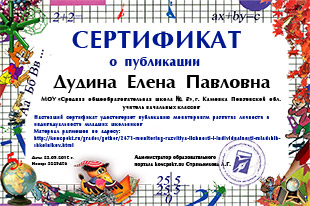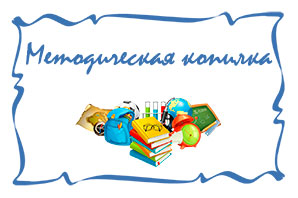Конспект урока по английскому языку "Going Green 7. Dian Fossey. Endangered animals" 11 класс
Модуль 7 In days to come "Мое будущее". Lesson 8
Цели:
- систематизация и активизация лексики по теме "Экология. Животные";
- развитие лексических навыков;
- развитие навыка поискового чтения;
- развитие навыка диалогической и монологической речи;
Активная лексика: work miracle, disabled, save up, behavior, earn one’s trust, meet the same fate, declare war on, outspoken, target, murdered, bury, endanger, extinction.
Оборудование: УМК "Spotlight"- 11, под редакцией Ю. Е. Ваулиной, Дж. Дули, аудиодополнение, доска, презентация.
Ход урока
Greeting 1. Беседа
T: Good morning, boys and girls.
P-s: Good morning, teacher.
T: I’m glad to see you.
P-s: We are glad to see you too.
T: Sit down, please. Let’s start our lesson. Answer my questions, please. What date is it today?
P1: Today is ….
Aim 2. Сообщение темы и цели урока
T: Today we’ll speak again about the environmental problems on our planet. You can see a picture of it on the screen. I want you to guess what our lesson is going to be about, look at the pictures and guess.
P: The theme of our lesson is Dian Fossey. Endangered animals.
Warming-up 3. Введение в иноязычную атмосферу
T: Unscramble the words below to spell out animals on the endangered species list.
GTERI – tiger
ELTRUT - turtle
JGRUAA – jaguar
OAEPRLD – leopard
NDAAP – panda
EENTAPHL – elephant
LGORLIA – gorilla
OWLF – wolf
ARSKH – shark
NOCESORRHI – rhinoceros
Check on 4. Фронтальный опрос
Homework. Устная или письменная проверка лексического материала прошлого урока.
Основная часть урока
Speaking 1. Развитие навыков монологической речи. Describing a scene. Ex1, p133
T: Close your eyes. Listen to the sounds. Where do you think you are? What is happening? How do you feel?
P: I am in the jungle and I hear the gorillas. I feel excited but also peaceful at the same time with the sounds of water running and nature all around me.
Reading 2. Развитие навыков ознакомительного чтения.
а) Pre-reading. Этап подготовки к чтению. Ex2, p133
Работа над лексикой урока. Фонетическая отработка слов (listen and repeat). Запись слов в словарь.
|
1. |
workmiracle |
[ wɜːkˈ mɪrɪkl̩ ] |
Творить чудеса |
|
|
2. |
disabled |
[ dɪsˈeɪbld ] |
С ограниченными возможностями |
|
|
3. |
save up |
[ seɪv ʌp ] |
Копить деньги |
|
|
4. |
behavior |
[ bɪˈheɪvjə ] |
поведение |
|
|
5. |
earn one’s trust |
Застуживать доверие |
||
|
6. |
meet the same fate |
Попасть в подходящую ситуацию |
||
|
7. |
declare waron |
Объявить войну |
||
|
8. |
outspoken |
[ ˌaʊtˈspəʊkən ] |
Прямой, откровенный |
|
|
9. |
target |
[ ˈtɑːɡɪt ] |
Мишень, цель |
|
|
10. |
murdered |
[ ˈmɜːdə ] |
убитый |
|
|
11. |
bury |
[ ˈberi ] |
хоронить |
|
|
12. |
endanger |
[ ɪnˈdeɪndʒə ] |
Подвергать опасности |
|
|
12. |
extinction |
[ ɪkˈstɪŋkʃən ] |
Исчезновение, вымирание |
|
T: Describe the pictures. How do you think this woman made a difference to our world? Read the sentences A-E below and try to guess her story.
P: I see Dian interacting with the gorillas in the pictures. She seems to be able to communicate with them. She made a difference by helping us understand better these amazing creatures and fighting for their rights against being killed by poachers.
b) Reading. Этап чтения.
T: Read the article.
с) Post-reading. Этап проверки понимания прочитанного. Ex3, p133
T: Put the sentences A-E in the right place to complete the text. There is one extra sentence you do not need to use.
P: 1-D 2-Е 3-В 4-А
T: Explain the words/phrases in bold.
|
worked miracles: |
was extremely effective (былчрезвычайноэффективным) |
|
disabled: |
lacking a physical/mental ability (не хватает физических/умственных способностей) |
|
save up: |
keep money to use in the future (копить деньги, чтобы использовать в будущем) |
|
behaviour: |
way of acting (способдействия) |
|
earned their trust: |
became their friend (сталихдругом) |
|
met the same fate: |
ended up the same way (вконечномитоге - тожесамое) |
|
declared war: |
stated intention to fight (заявилонамерениибороться) |
|
outspoken: |
giving opinion(s) freely without worrying about offending people (Разбрасыватьсямнением(ями) свободно, небеспокоясьобидетьлюдей) |
|
target: |
focus of attack (цельатаки) |
|
murdered: |
unlawfully killed (незаконноубитый) |
|
buried: |
put under the ground after the death (положитьподземлюпослесмерти) |
|
endangers: |
puts at risk (ставитподугрозу) |
|
extinction: |
no longer in existence (as a species) (уженесуществует (каквид)) |
Физкультминутка
Practicing 3. Активизация нового лексического материала. Choosing the best Vocabulary adjectives to describe Dian Fossey. Ex4, p133
T: Listen and read the text again. Which of these adjectives best describe Dian?
Tell your partner. Give reasons, sensitive, dishonest, caring, patient, nervous, determined.
P1: I think Dian was a very caring person because she loved animals, took care of mountain gorillas and their babies and even worked miracles with disabled children.
P2: I guess Dian was extremely determined since she fought for her beloved gorillas' rights and declared war on the poachers to protect the animals from extinction.
P3: Dian must have been a very patient person as she spent the most of her life watching and recording the behaviour of mountain gorillas. It took a long time to earn their trust.
Speaking 4. Развитие навыков монологической речи. Preparing and giving a presentation about an environmentalist. Ex5, p133
T: In groups collect information about Dian Fossey or another environmentalist. Present it to the class.
P1: Rachel Carson (1907 - 1964), an American marine biologist and nature writer, grew up on a small farm near Springdale, Pennsylvania. An avid reader at an early age, she began writing when she was just eight years old. She is best known today for her work 'Silent Spring' which led to a nationwide ban on the use of DDT and other harmful pesticides.
After studying biology at the Pennsylvania College for Women, she studied zoology and gained her master's degree in 1934. In 1935 her father died suddenly and Carson was left to take care of her aging mother. Rather than study further (to obtain a doctorate), she took on a job at the U.S. Bureau of Fisheries. Carson also began writing articles about marine life to newspapers and magazines. In 1952 she gave up her job to concentrate on her writing. Carson's main subject was the dangers of pesticide overuse.
She investigated many cases of pesticide exposure and found evidence to support the pesticide-cancer connection. Unfortunately, she developed cancer herself and died at the age of 56. In recognition for her work, Carson was awarded the Presidential Medal of Freedom - the highest civilian honour in the United States.
P2: Dian Fossey(1932 – 1985) was a zoologist who was researching the endangered gorillas. She is best known for fighting for gorillas' rights and for her mysterious murder.
Dian Fossey was born on January 16, 1932, in California. Developing an affinity for animals at a young age, throughout her youth, Fossey was an avid horseback rider and an aspiring veterinarian. After graduating from San Jose in 1954, Fossey spent several months working as a hospital intern in California.
She soon became restless, longing to see other parts of the world and setting her sights on Africa. While working as an occupational therapist, Fossey became interested in primates during a trip to Africa in 1963. She studied the gorillas of the Rwandan mountain forest for two decades.) She saw these animals as dignified, highly social creatures with individual personalities and strong family relationships. She fought for the gorillas not only via the media, but also by destroying poachers' dogs and traps.
Fossey told her story in the book Gorillas in the Mist (1983), which was later adapted for a film. Tragically, on December 26, 1985, Dian was found hacked to death, presumably by poachers, at her Rwandan forest camp.
P3: Theodore "T.R." Roosevelt Jr. (1858-1919) was an American politician, author, naturalist, soldier, explorer, and historian who served as the 26th President of the United States. He was a leader of the Republican Party and founder of the Progressive Party insurgency of 1912. He is known for his exuberant personality, range of interests and achievements, and his leadership of the Progressive Movement, as well as his "cowboy" persona and robust masculinity.
Theodore Roosevelt is well known as the 26th president of the United States. In addition to this, his history includes being vice president under McKinley, governor of New York, colonel of the Rough Riders, and possibly the first conservationist. Roosevelt took interest in the outdoors after a childhood of hunting trips with his father. As president, Teddy established the United States forest service. Through this, he created 5 National Parks, 51 bird reserves, 4 game preserves, and 150 national forests.
During his lifetime, he added approximately 230,000,000 of land into public protection. (According to the Theodore Roosevelt Association) Roosevelt believed that conservation was a national duty, not a privilege. His main competitor was John Muir, who fought for preservation, rather than conservation. Roosevelt is considered by many to be one of the greatest presidents of the United States, and his work for conservation play a great deal into this.
P4: Sandra Steingraber is an author, biologist, mother, and cancer survivor. She is an advocate for many issues, including ecology and climate change. The field Steingraber took the strongest position on is the effects of nature and human health. She targets political activists and parents alike, to help put a stop to pollution of the air, water, and body.
In 2011, Steingraber received the Heinz Award. She then used this prize money to aid an anti-fracking movement, and in 2012, became the co-founder of New Yorkers Against Fracking. Steingraber has served jail time for her acts of civil disobedience, during a protest at Inergy, a propane provider. Sandra Steingraber made this list primarily for her efforts in promotion of the issues associated with pollution.
She took charge in drawing attention to the health risks, and added a new perspective with her experience with cancer. As a mother, she has taken a direct interest in the well being of the environment that her children grow up in, and encourages others to do the same.
Заключительная часть
Homework 1. Домашнее задание
T: Open your diaries, please, and write down your home task: Подготовить устную тему "In days to come" (20 предложений). Повторить лексический материал прошлых уроков. Выучить новый.
Summarizing 2. Подведение итогов урока



